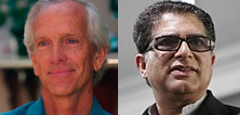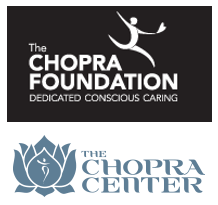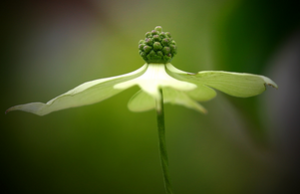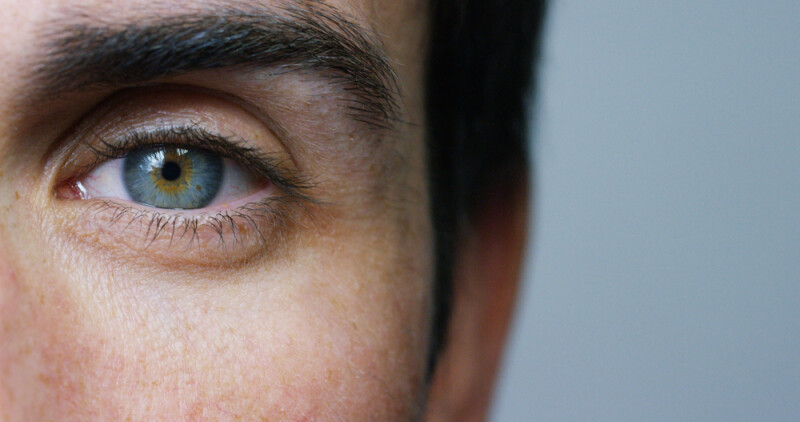Enhanced sense of oneness found in study of Chopra Center Retreat
February 8, 2018
 by John Weeks, Publisher/Editor of The Integrator Blog News and Reports Editor’s note: This analysis article is not edited and the authors are solely responsible for the content. The views and opinions expressed in this article are those of the authors and do not necessarily reflect the official policy or position of Integrative Practitioner. A surprising but influential bit player in the early days of mind-body research was the so-called Moral Majority. The questionably-named entity was the spearhead of a sector of the USA population that was holding tight to a Western, conservative Christian narrative for the nation.
by John Weeks, Publisher/Editor of The Integrator Blog News and Reports Editor’s note: This analysis article is not edited and the authors are solely responsible for the content. The views and opinions expressed in this article are those of the authors and do not necessarily reflect the official policy or position of Integrative Practitioner. A surprising but influential bit player in the early days of mind-body research was the so-called Moral Majority. The questionably-named entity was the spearhead of a sector of the USA population that was holding tight to a Western, conservative Christian narrative for the nation.  Christian conservatives weren’t then pleased with what to them was the corrosive Eastern origins of “transcendental meditation.” So, when pioneering mind-body researcher Herbert Benson, MD and colleagues popularized their research on the field, they avoided potential rancor by dubbing their findings with the unthreatening title of The Relaxation Response. Who could argue with that? This bit of savvy shape-shifting came to mind on reading the outcomes of a recent study from Paul J. Mills, PhD and a group associated with the San Diego-based Chopra Center. Their examination of a 6-day residential retreat found that those randomized to the Center’s Ayurvedic-styled “Perfect Health” program experienced increased sense of “non-dual awareness.” Put in lingo more familiar to the culture wars of the Sixties against which the conservative Christians lashed, the participants were more likely to feel a sense of oneness - less ego, and more connection with the life around them. The report, called “Change in Sense of Dual Awareness and Spiritual Awakening in Response to a Multidimensional Well-Being Program”, is available here on open access until March 6, 2018.
Christian conservatives weren’t then pleased with what to them was the corrosive Eastern origins of “transcendental meditation.” So, when pioneering mind-body researcher Herbert Benson, MD and colleagues popularized their research on the field, they avoided potential rancor by dubbing their findings with the unthreatening title of The Relaxation Response. Who could argue with that? This bit of savvy shape-shifting came to mind on reading the outcomes of a recent study from Paul J. Mills, PhD and a group associated with the San Diego-based Chopra Center. Their examination of a 6-day residential retreat found that those randomized to the Center’s Ayurvedic-styled “Perfect Health” program experienced increased sense of “non-dual awareness.” Put in lingo more familiar to the culture wars of the Sixties against which the conservative Christians lashed, the participants were more likely to feel a sense of oneness - less ego, and more connection with the life around them. The report, called “Change in Sense of Dual Awareness and Spiritual Awakening in Response to a Multidimensional Well-Being Program”, is available here on open access until March 6, 2018.  The study is one of multiple research papers developed through the Self-Directed Biological Transformation Initiative (SBTI) involving a seven-institution research group. This included Mills’ base at UC San Diego, Harvard Medical School and its neurologist Rudi Tanzi, PhD, plus others associated with the Chopra Center. Well-known author and speaker Deepak Chopra, MD, the founder of the center, was on the team. The SBTI was funded through over $1-million from a half-dozen philanthropies including the Walton Family Foundation. In the SBTI, the researchers gathered biological and physiological data as well as a series of before, after, and 30 days post self-reports from 69 individuals who completed a six-day Ayurvedic retreat at the Chopra Center. For this study, one of the tools, along with a more established Delaney Spirituality Scale, was the Nondual Embodiment Thematic Inventory (NETI). The participants respond on “how frequently the following occur for you” for 20 experiences. These include, for instance:
The study is one of multiple research papers developed through the Self-Directed Biological Transformation Initiative (SBTI) involving a seven-institution research group. This included Mills’ base at UC San Diego, Harvard Medical School and its neurologist Rudi Tanzi, PhD, plus others associated with the Chopra Center. Well-known author and speaker Deepak Chopra, MD, the founder of the center, was on the team. The SBTI was funded through over $1-million from a half-dozen philanthropies including the Walton Family Foundation. In the SBTI, the researchers gathered biological and physiological data as well as a series of before, after, and 30 days post self-reports from 69 individuals who completed a six-day Ayurvedic retreat at the Chopra Center. For this study, one of the tools, along with a more established Delaney Spirituality Scale, was the Nondual Embodiment Thematic Inventory (NETI). The participants respond on “how frequently the following occur for you” for 20 experiences. These include, for instance: - Accepting (not struggling with) whatever experience I may be having.
- An interest in clearly seeing the reality or truth about myself, the world, and others, rather than in feeling a particular way.
- A sense of anxiety that inhibits my actions.
- Not being personally invested in or attached to my own ideas or concepts.




















SHARE